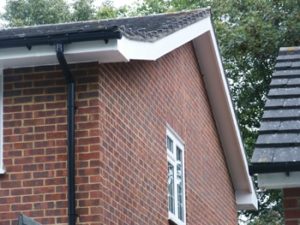
5
JulyIntroduction To The Intermediate Guide Towards Soffits

Understanding Fascias and Soffits: Key Components of Your Home's Exterior
When it pertains to maintaining the structural stability and aesthetic appeal of a home, lots of property owners overlook the significance of fascias and soffits. These components are essential in protecting a home from the components while likewise improving its visual appeal. In this article, we will look into the meanings, functions, materials, maintenance pointers, and FAQs surrounding fascias and soffits to provide an extensive understanding of their significance in domestic architecture.
What Are Fascias and Soffits?
Fascias
Fascias are the long, horizontal boards that line the edge of a roofing. They are situated at the junction where the roofing meets the outside walls of a house, generally serving two main functions: functioning as a visual trim at the roofline and offering a mounting point for the gutter system.
Soffits
Soffits, on the other hand, are the boards that connect the exterior wall to the fascia, providing an ended up surface under the roofing system overhang. They are essential for ventilating the attic space, ensuring appropriate air blood circulation, and avoiding moisture buildup, which could result in mold development and structural damage.
Functions of Fascias and Soffits
Fascias and soffits play vital functions in home security and maintenance, consisting of:
Protection From Weather Elements: They help protect the underlying structures from wind, rain, and snow, preventing water damage and external destruction.
Aesthetic Appeal: These components add to the overall look of a home, framing the architectural style, particularly in the roof location.
Gutter Support: Fascias provide a steady surface area for setting up rain gutters, guaranteeing proper water drain from the roofing.
Ventilation: Soffits permit for air flow in the attic area, which is essential for regulating temperature and wetness levels.
Insect Deterrence: When correctly set up, both fascias and soffits can assist keep bugs like birds and rodents at bay.
Materials Used for Fascias and Soffits
Fascias and soffits are offered in various products, each with its advantages and drawbacks. The most common products include:
| Material | Advantages | Drawbacks |
|---|---|---|
| Wood | Traditional aesthetic, simple to paint | Requires regular maintenance, susceptible to rot |
| Vinyl | Low maintenance, weather-resistant | Limited color alternatives, can fade in time |
| Aluminum | Resilient, light-weight, rust-proof | Can dent easily, requires proper installation |
| Fiber Cement | Resistant to bugs and rot | Heavier than other products, higher expense |
| PVC | Durable, maintenance-free | Plastic appearance, can be less sustainable |
Comprehending These Materials
- Wood: Often selected for its timeless look, wood requires sealing and routine painting or staining to maintain its life expectancy.
- Vinyl: A popular choice due to its low maintenance; it does not need painting and is readily available in different colors.
- Aluminum: Known for its toughness and capability to withstand extreme weather condition, aluminum fascias and soffits can provide a streamlined, modern appearance.
- Fiber Cement: Made from a composite of cement and cellulose fibers, this product is highly resistant to components and insects.
- PVC: An extremely long lasting alternative, PVC products do not rot and are resistant to pests however may lack the visual appeal of wood or fiber cement.
Maintenance Tips for Fascias and Soffits
Routine maintenance of Fascias (just click the following web page) and soffits is crucial to lengthen their life expectancy and protect the overall stability of a home. Here are some helpful ideas:
- Regular Inspections: Periodically check for indications of damage, such as rot, holes, or denting.
- Clean Gutters: Keep rain gutters clear of debris to prevent overflow that can harm the fascias.
- Wetness Management: Ensure that the ventilation in the attic is appropriate to avoid wetness buildup.
- Painting and Sealing: For wooden fascias, make it a routine to repaint or reseal every few years to protect versus the components.
- Insect Control: Inspect for indications of pest invasion, as little openings in fascias and soffits can allow entry.
Frequently asked questions About Fascias and Soffits
1. How typically should fascias and soffits be examined?
Typically, homeowners need to examine their fascias and soffits at least as soon as a year, especially after severe weather condition.
2. Can I paint or stain synthetic materials like PVC or vinyl?
While PVC and vinyl do not need painting, you can use special paint developed for these materials for personalization, though it's not necessary for maintenance.
3. What are the signs that my fascias and soffits need changing?
Signs include noticeable rot, looseness, peeling paint, or noticeable sagging. If water damage is noticeable on the interior of the home, replacement may be essential.
4. Why is ventilation important in soffits?
Correct ventilation in soffits assists to regulate attic temperature level, decreases wetness accumulation, and prevents condensation that can lead to severe structural concerns.
5. Exist any DIY alternatives for installing fascias and soffits?
While DIY installation is possible for knowledgeable handypersons, professional installation is suggested to make sure correct fit and function, especially concerning gutter attachments.
Fascias and soffits may typically go unnoticed up until noticeable problems emerge, however understanding their function and significance is crucial for any homeowner. By routinely maintaining these elements, selecting quality products, and dealing with problems early, homeowners can significantly improve both the visual appeal and the longevity of their homes. Putting in the time to comprehend fascias and soffits is an investment in the future stability and appeal of a home.


Reviews